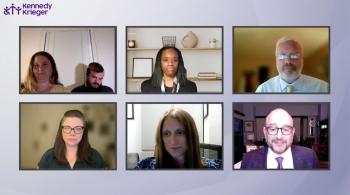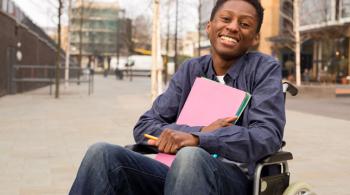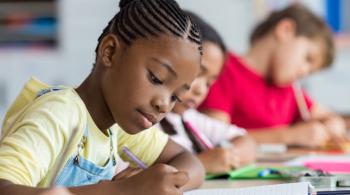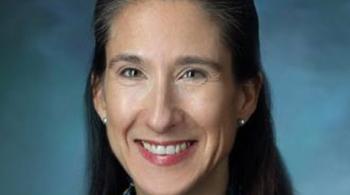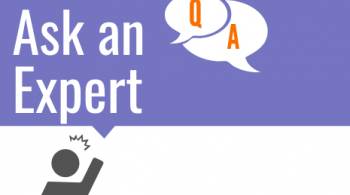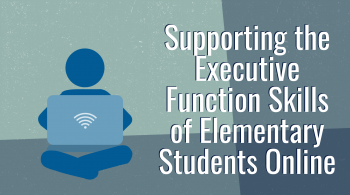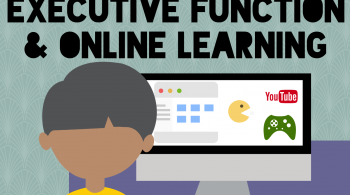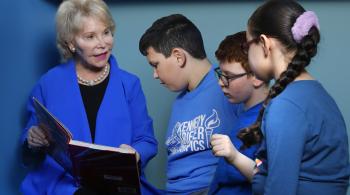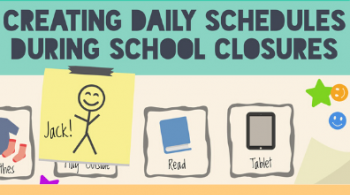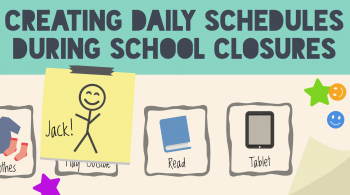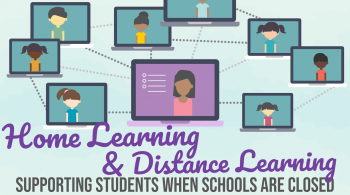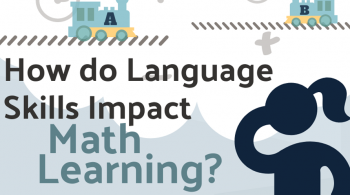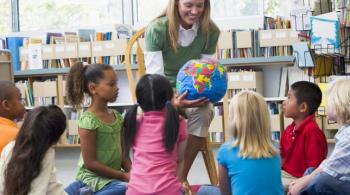By Dr. Lisa Jacobson and Lisa Carey
June 13, 2017
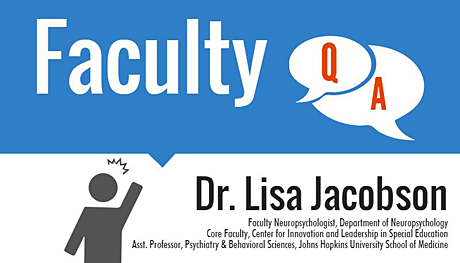
Education Consultant Lisa Carey sat down with Dr. Lisa Jacobson to discuss the role teachers and schools can play in supporting the needs of childhood cancer survivors.
Lisa Carey: I’m assuming most people don’t think of neuropsychologists when they think about caring for children with cancer or pediatric cancer survivors. Can you explain your role in the care of pediatric cancer patients?
Lisa Jacobson: Like most neuropsychologists, I have less of a role in treatment than recovery. Most neuropsychologists involved in the care of pediatric cancer patients are involved more on the survivorship side of care. Generally speaking, children are diagnosed and then go through some kind of treatment (most likely chemotherapy, radiation, and /or surgery). Unfortunately, those particular treatments are likely to have a neuro-cognitive impact, particularly for certain cancers.
Lisa Carey: To give our readers a bit of background, can you talk about the most common kind of pediatric cancer and the common types of treatment?
Lisa Jacobson: The most common type of childhood cancer is leukemia, which is a blood cancer. It is typically treated by chemotherapy and can be taken by mouth, or put directly into the veins or a spinal tap. Treatment for leukemia takes two to three years on average, depending on the age of the patient and severity of the disease. It is most commonly diagnosed in children ages three to five, which means treatment is typically occurring prior to a child entering school, although there are many children that will miss preschool and kindergarten due to treatment. It’s important to keep in mind that these are very important years for learning foundational skills. Survivors might be missing some important knowledge and skills and will need time to catch up.
Brain tumors are another common type of childhood cancer. There is a huge variety of brain tumors that impact children. Brain tumors are difficult to treat, as the tumors may be located anywhere in the brain. The impact of a brain tumor on a child depends on its size, where it was located, and the damage sustained to that brain area during treatment. Surgery, radiation therapy, and chemotherapy may all be used to treat a brain tumor.
Lisa Carey: Can you explain what teachers should know about the impact cancer treatments can have on the brains of their students?
Lisa Jacobson: The two most common types of childhood cancers typically require what we call central nervous system-directed therapy. Because the brain is part of the central nervous system, these life-saving treatments impact the brain and a child’s development, learning ability, social functioning, and physical functioning. When children get to the survivorship point, a neuropsychologist can be very helpful in figuring out the specific impacts. Children grow and develop skills, but if they’ve had treatment early on, their development may be impacted in a different way. Particular difficulties may be evident as they grow. For example, if there is treatment that is damaging to the developing white matter within the brain, they are likely to have more difficulty with attention, processing speed, or executive functioning. But, we don’t expect a three-year-old to do a lot of those things, so if they were treated at three, the impact of the treatment might not be evident right away. But, it might be evident as they start to age into the upper grades and expectations start to increase.
Neuropsychologists can help generate an estimate of where those skills are, either during treatment or following treatment. We also follow children over time to try and figure out how those particular skills are developing and what kinds of learning or physical supports and/or physical therapies might be helpful.
Lisa Carey: In terms of the late term effects of cancer treatment, if kids are getting treated when they’re toddlers, schools might not know the child has been treated. How can teachers talk to parents about symptoms they’re seeing and provide an entryway to parents to share information that might be pertinent?
Lisa Jacobson: It’s a conversation that is important to have. There are many children that may have difficulties and we don’t know why. Maybe they’re struggling with attention, or struggling more than their peers with executive function skills, or with efficiency, or with something like learning to read. But, it might be that in the ongoing conversations with parents, the teacher could include their observations and ask if the parents see similar difficulties at home. Some parents may volunteer that the child had cancer at an early age. It can be difficult to identify these late term effects, as it can be challenging for parents to realize the learning difficulties their child is experiencing are related to cancer treatment. It is important educators remember that when parents go through treatment with their children, they are focused on their child surviving. School isn’t really a concern in that moment. Therefore, they often aren’t attuned to the fact that there may be late effects of treatment. In the moment, those things aren’t critical. Survival is critical. Parents aren’t always thinking about these difficulties and how they are caused by their child’s cancer treatment. In some cases, it might be obvious early on. A very young child that had radiation to their brain may display very clear delays in their learning, whereas a child who was treated for leukemia may not show any signs of difficulties until and that may be evident sooner than treatment for leukemia, for example.
Lisa Carey: What can teachers and schools do to help students who are transitioning, who they know are returning to school from treatment?
Lisa Jacobson: I think this depends on a few things. It certainly depends on is the age of the child and what stage of treatment they’re in. One of things I hear most often from the families of children that I see, is the need for schools that are willing to be flexible. Are you willing to try something different? Are you willing, as a teacher, to investigate ways to support the child before they may meet full criteria for specialized instruction and an IEP? Keeping an eye out for predictable, specific difficulties, talking to the families, having open and ongoing communication. We commonly see that children who have had more intensive treatments are more easily fatigued than other children, even after treatment is completed. They may work at a slower pace and usually get to a point where they are simply done for the day, despite being motivated and trying their hardest. They just don’t have the stamina. It takes years to get stamina back after you’ve been treated for cancer for a significant period of time. Being sensitive to those things is important. These challenges can be addressed with some minor supports that don’t necessarily requiring involving the whole IEP team. On the other hand, being sensitive to the possibility of the need for special education services is important. The biggest things are communication and flexibility.
Lisa Carey: Having had students that were cancer survivors, I found that just being aware that students had appointments with medical specialists that required them to miss school was important. The expectation that the family can be flexible and go after school to a doctor’s appointment isn’t reasonable. I found it important to understand that the student isn’t missing classes because the family doesn’t find school valuable, but rather, because going to the specialist and staying alive is far more important.
Lisa Jacobson: Yes, also keep in mind that some children may need to be seen every week, even after treatment is completed. Also be aware that many children still need to be followed by their medical team. A plan for completing missed work and catching up on missed instruction is important.
Lisa Carey: Before we end this conversation, can you suggest some supports a teacher can put in place from the moment the student enters the classroom?
Lisa Jacobson: Carefully monitoring a child’s skills is very important. One of the things that is really difficult about childhood cancer and varies from higher instance disabilities is that these children may not be a stable target. For example, if you have a child with a reading disability, you know what it is, you work on the particular skill, they get better at that skill, and you close the gap on their reading abilities. With students who are cancer survivors, because of the injury to the brain, their skills are going to look different over time. As I mentioned, there is a concept of them growing into their injury. They develop different kinds of difficulties as expectations change.
The classic areas that we can predict difficulties will be:
- attention,
- executive functioning,
- math difficulties and visual-spatial difficulties (particularly in leukemia patients)
- memory difficulties (in patients who have had a brain tumor treated with radiation)
There are some very clear impacts on learning and related skills that may become more evident over time. Closely tracking student progress will enable the school to robustly address these areas later on. Remember, just because a child is doing fine when they first come back to school doesn’t mean they will continue to be fine in eight months or a few years.
Also, try and be attuned to the social interactions of students. It’s easy for childhood cancer survivors to feel different from their peers. Some students may not have hair, may havemissed a lot of school, or physically can’t participate in the same activities as other kids because of fatigue, or other physical limitations brought about by cancer and treatment. Kids feel different and they may get treated differently. Creating a classroom and school culture that is accepting of differences and shows students how to interact and play well with each other will make the transition into the classroom a smoother process for child cancer survivors
Have a topic or question you would like to see addressed in a future Linking Research to Classrooms blog?
Enter your topic /question in our contact form.

